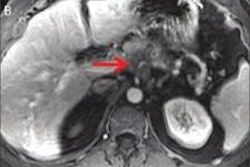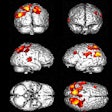Dear Molecular Imaging Insider,
It isn't often that molecular imaging specialists get a new radiopharmaceutical to work with. So the excitement is understandable around the approval by the U.S. Food and Drug Administration (FDA) of new drug applications (NDAs) for radiotracers based on gallium-68 (Ga-68) that target lesions positive for prostate-specific membrane antigen (PSMA).
On December 1, the FDA announced that it was approving NDAs filed by the University of California, San Francisco (UCSF) and the University of California, Los Angeles (UCLA) for their formulations of gallium-68 (Ga-68) PSMA-11. The radiotracers are designed for use in men with prostate cancer who have suspected metastases but have a good prognosis, as well as for men with elevated prostate-specific antigen levels suggestive of recurrence.
Both UCSF and UCLA conducted clinical trials in support of the NDAs, and both noted that it's rare for academic institutions to seek out approval for drugs. It's hoped that the FDA's move will lead to wider usage of Ga-68 PSMA-11 for prostate cancer. Read more about the news in this edition's Insider Exclusive.
Elsewhere in the world of molecular imaging, the value of PET/CT for guiding the treatment of lymphoma patients was explored in a series of presentations at the American Society of Hematology meeting earlier this month.
In addition, a paper published December 10 in the American Journal of Roentgenology found promising results for using metabolic metrics from PET/MRI and morphological metrics from CT to evaluate tumor response in patients with pancreatic ductal adenocarcinoma.
Another recent major story in the Molecular Imaging Community included research that used PET to link poor air quality to brain plaque in patients with Alzheimer's disease. PET scans showed that individuals exposed to more air pollution were 10%-15% more likely to develop amyloid plaques compared with individuals from the least-polluted areas.
Also, exciting new research was launched this month investigating the value of brain PET scans for diagnosing Alzheimer's disease across a diverse patient population. Called New IDEAS: Imaging Dementia -- Evidence for Amyloid Scanning, the study builds on the IDEAS project that began in 2016. New IDEAS will explore whether brain amyloid PET scans help clinicians offer more accurate diagnoses of dementia as well as improve patients' treatment plans.
As this challenging year draws to a close, we'd like to thank all of our Molecular Imaging Insider members who have supported the community throughout the year. Stay safe, and happy holidays!




















